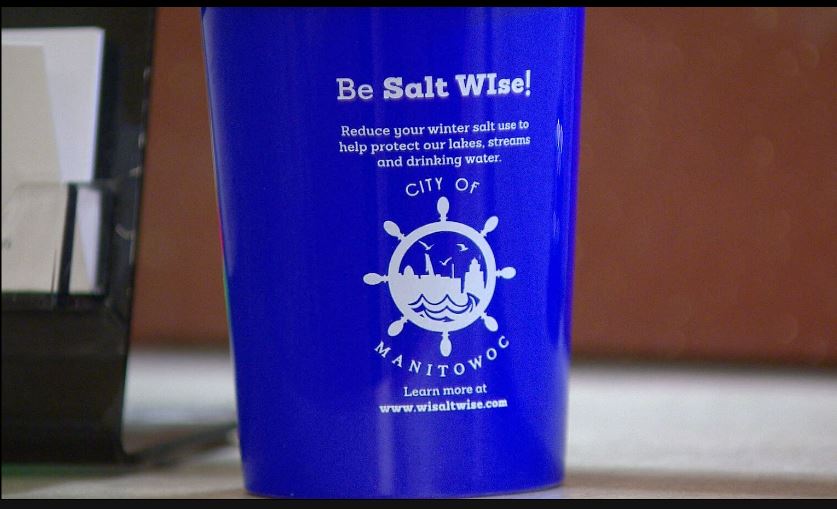Manitowoc providing ‘salt cups’ to prevent over-salting in wintry weather

Small cups that Manitowoc
By Phil DeCastro
Click here for updates on this story
MANITOWOC, Wisconsin (WLUK) — It’s winter time. The snow has fallen, the ice has formed up. It’s time to get that salt out to try to clear your sidewalk or your driveway, but you need a lot less salt to cover a lot more area than you might think.
Just one coffee mug worth of salt is enough to clear 10 squares of sidewalk, or 20 feet of driveway, according to Wisconsin Salt Wise.
And now, the city of Manitowoc is providing plastic cups that contain just that perfect amount of salt for any resident to come pick up at city hall.
It’s part of a push from the city to change how people think about how much salt they really need to use.
And the Wisconsin Department of Natural Resources is happy to see it.
“To hear that a city adjacent to Lake Michigan, and the size of Manitowoc is really on board, is exciting. And I’m hoping there will be more momentum that way around the state,” says Shannon Haydin, DNR Stormwater Section Manager.
Haydin is also spearheading a push from the DNR to outline exactly what can be done to combat rising salinity, or amount of salt, in Wisconsin’s waterways. There are already about 50 rivers, streams and lakes that currently exceed federal guidelines.
But Haydin is optimistic that we can keep the rest from getting to that point.
Using surveys of government agencies and municipalities, private snow removal businesses and multiple scientific studies, they developed 16 recommendations to curb the increasing salinity in our waterways.
“If we can prevent them, I think it will go a long way. And I think that where we’re feeling is that we do have an opportunity to affect change, and we’re hopeful that when people know what they can do, they will,” says Haydin.
Even aside from the environmental reasons, homeowners might still want to be more mindful of how much salt they use. If you use less salt, you have to buy less salt — and you save money.
And depending on the surface of your driveway, you might want to avoid using salt anyway.
Cainn Senn, a local mason, says putting salt on poured concrete is a recipe for problems down the road.
“Well, I just know that I’m going to have plenty of work ahead. Over time, it deteriorates the top surface of your concrete. It gets on top of our concrete and when it gets wet, it causes a chemical reaction to start eating away at the surface of your concrete,” says Senn.
It might take more effort and scraping to keep your driveway clear in the winter, but it’ll save the surface in the long run.
And to be clear, the DNR isn’t saying we should stop using salt entirely. They just see a lot of room for improvement.
“If we can get people educated and just use the appropriate amount, and the right time, in the right place, we will start to slow that upward trend,” says Haydin.
Please note: This content carries a strict local market embargo. If you share the same market as the contributor of this article, you may not use it on any platform.





